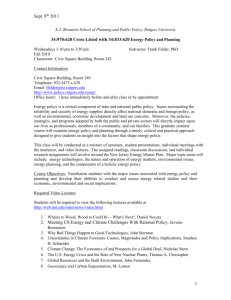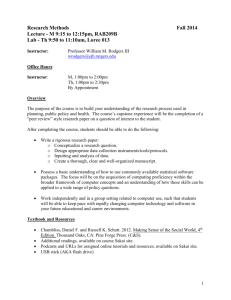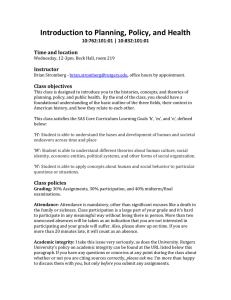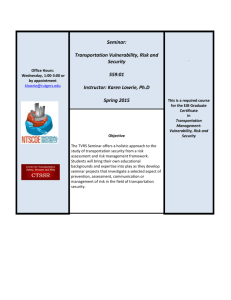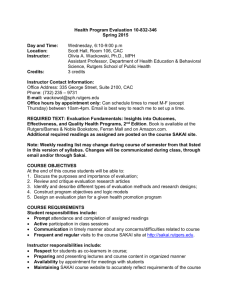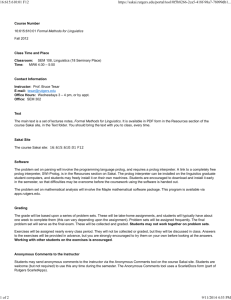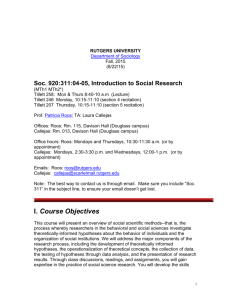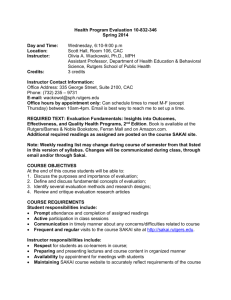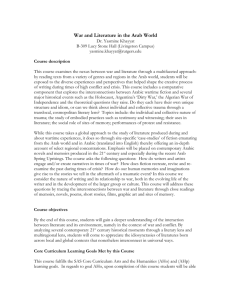The course purpose is to study human behavior
advertisement
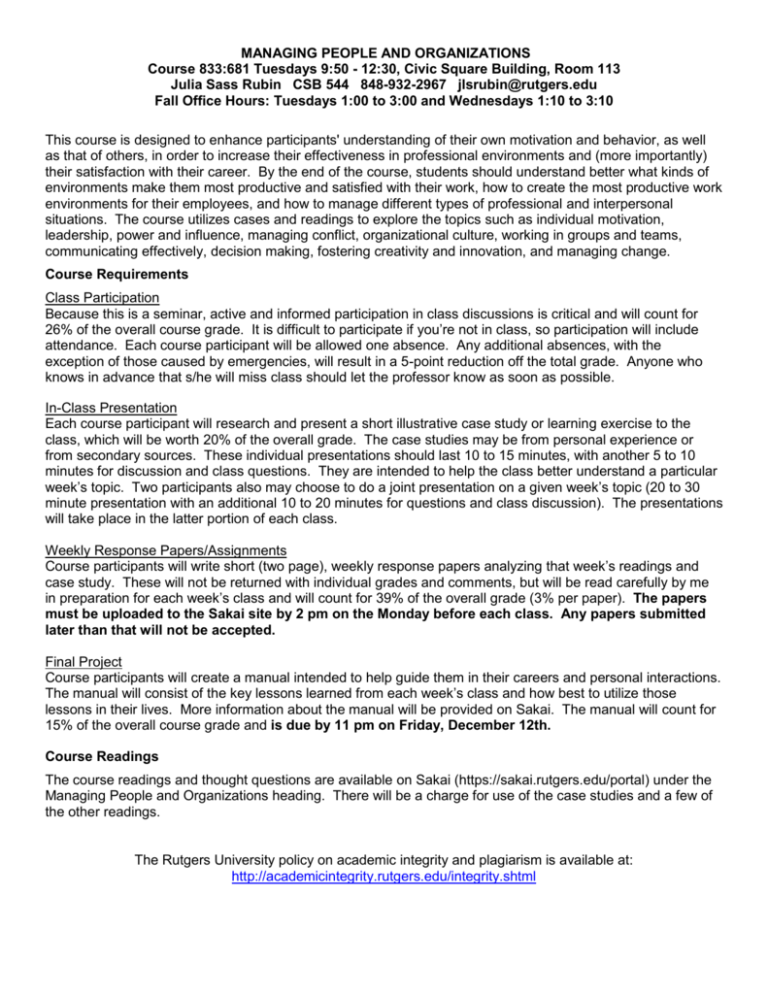
MANAGING PEOPLE AND ORGANIZATIONS Course 833:681 Tuesdays 9:50 - 12:30, Civic Square Building, Room 113 Julia Sass Rubin CSB 544 848-932-2967 jlsrubin@rutgers.edu Fall Office Hours: Tuesdays 1:00 to 3:00 and Wednesdays 1:10 to 3:10 This course is designed to enhance participants' understanding of their own motivation and behavior, as well as that of others, in order to increase their effectiveness in professional environments and (more importantly) their satisfaction with their career. By the end of the course, students should understand better what kinds of environments make them most productive and satisfied with their work, how to create the most productive work environments for their employees, and how to manage different types of professional and interpersonal situations. The course utilizes cases and readings to explore the topics such as individual motivation, leadership, power and influence, managing conflict, organizational culture, working in groups and teams, communicating effectively, decision making, fostering creativity and innovation, and managing change. Course Requirements Class Participation Because this is a seminar, active and informed participation in class discussions is critical and will count for 26% of the overall course grade. It is difficult to participate if you’re not in class, so participation will include attendance. Each course participant will be allowed one absence. Any additional absences, with the exception of those caused by emergencies, will result in a 5-point reduction off the total grade. Anyone who knows in advance that s/he will miss class should let the professor know as soon as possible. In-Class Presentation Each course participant will research and present a short illustrative case study or learning exercise to the class, which will be worth 20% of the overall grade. The case studies may be from personal experience or from secondary sources. These individual presentations should last 10 to 15 minutes, with another 5 to 10 minutes for discussion and class questions. They are intended to help the class better understand a particular week’s topic. Two participants also may choose to do a joint presentation on a given week’s topic (20 to 30 minute presentation with an additional 10 to 20 minutes for questions and class discussion). The presentations will take place in the latter portion of each class. Weekly Response Papers/Assignments Course participants will write short (two page), weekly response papers analyzing that week’s readings and case study. These will not be returned with individual grades and comments, but will be read carefully by me in preparation for each week’s class and will count for 39% of the overall grade (3% per paper). The papers must be uploaded to the Sakai site by 2 pm on the Monday before each class. Any papers submitted later than that will not be accepted. Final Project Course participants will create a manual intended to help guide them in their careers and personal interactions. The manual will consist of the key lessons learned from each week’s class and how best to utilize those lessons in their lives. More information about the manual will be provided on Sakai. The manual will count for 15% of the overall course grade and is due by 11 pm on Friday, December 12th. Course Readings The course readings and thought questions are available on Sakai (https://sakai.rutgers.edu/portal) under the Managing People and Organizations heading. There will be a charge for use of the case studies and a few of the other readings. The Rutgers University policy on academic integrity and plagiarism is available at: http://academicintegrity.rutgers.edu/integrity.shtml 2 Week 1: September 5 Introduction and Course Overview Week 2: September 9 Knowing Yourself Week 3: September 16 Understanding Others Week 4: September 23 Motivating Yourself and Others Week 5: September 30 Understanding an Organization's Culture Week 6: October 7 Power and Influence Week 7: October 14 Managing Conflict Week 8: October 21 Negotiating Effectively Week 9: October 28 Communicating Effectively with Others and Managing Meaning Week 10: November 4 Leadership Week 11: November 11 Working in Groups and Teams Week 12: November 18 Fostering Creativity and Innovation Week 13: December 2 Decision-Making Week 14: December 9 Organizational Change

